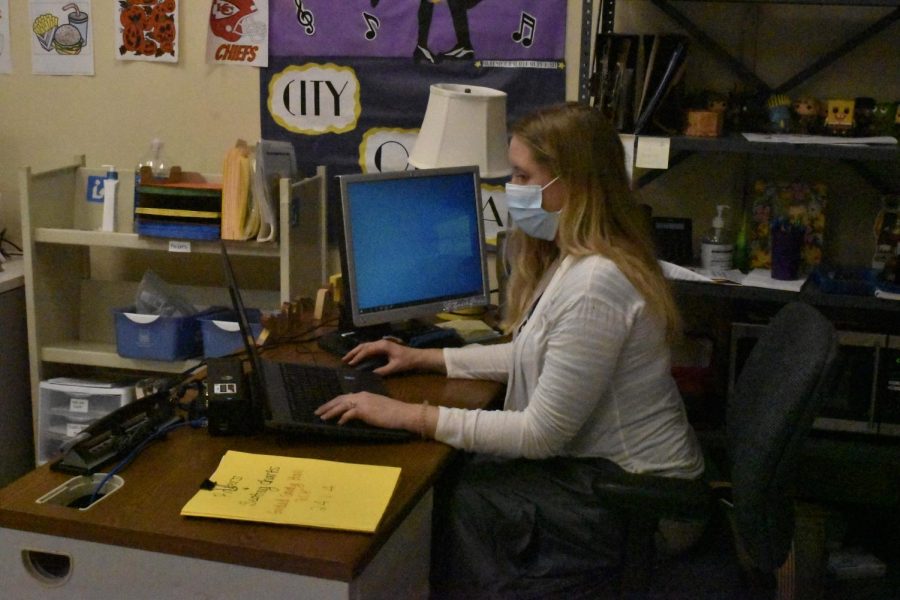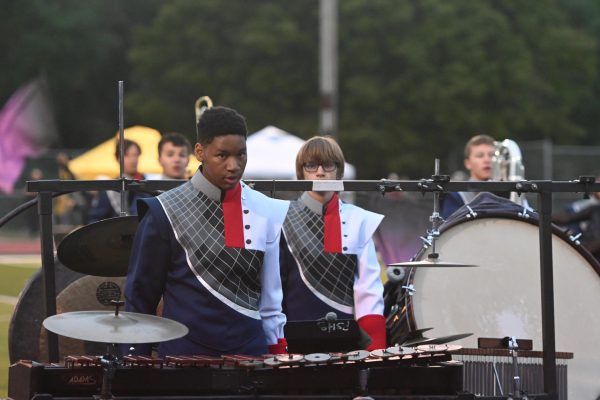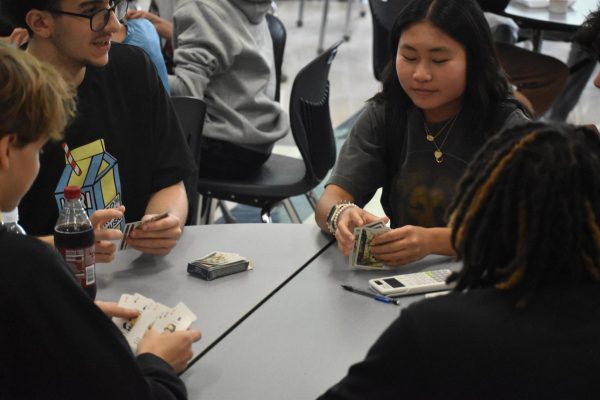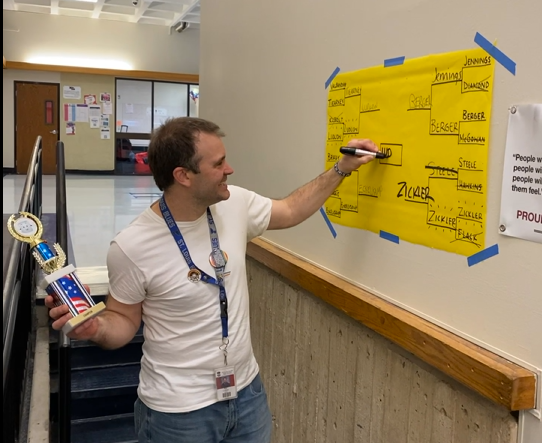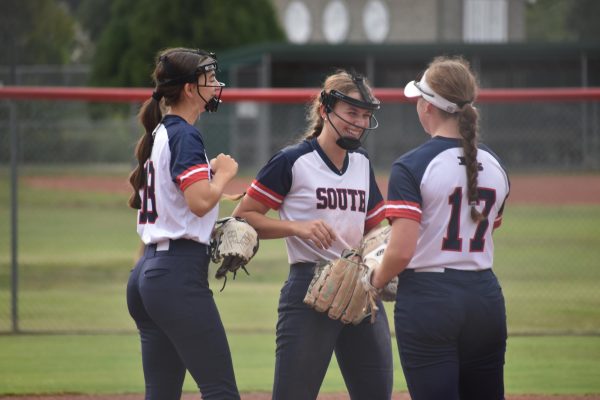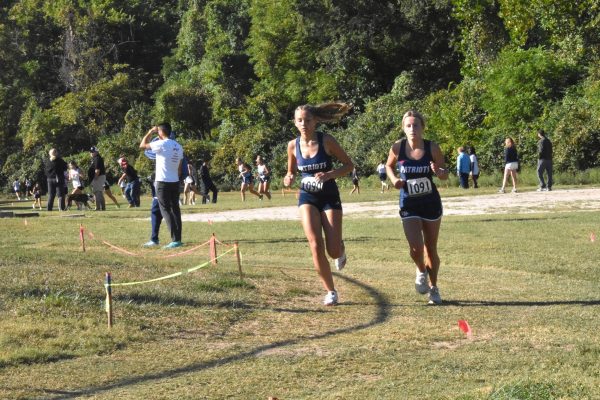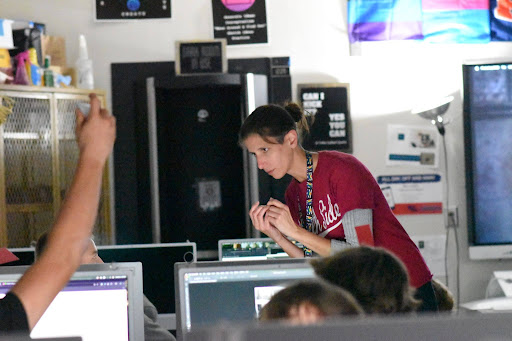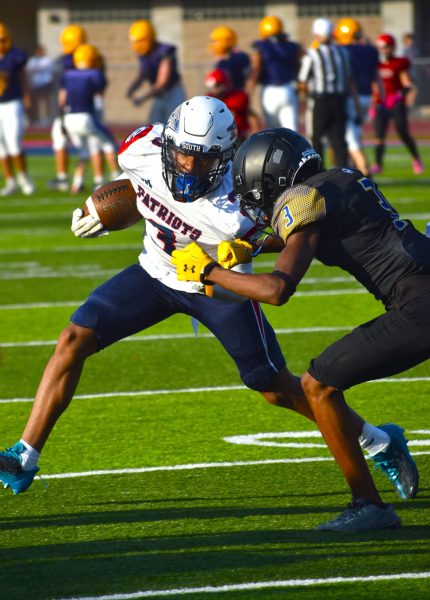Dining Discipline
South High institutes lunch detentions
Teacher Assistant Gretchen Joyner works at her desk on Thursday, Nov. 4. Joyner is supervising lunch detentions on purple and blue days.
Purple days aren’t the only thing new this year. Lunch detentions are a new consequence introduced this year by the South High administrative team.
In the past school detentions consisted of hour-long after-school detentions and three-hour long after-school detentions. This year, however, the one-hour after school detentions was swapped with lunch detentions. This change was the result of both a bus shortage and new realization according to Assistant Principal Jenn Sebold.
“It came up this year specifically because we don’t have 3:30 activity buses after school, and not every behavior needs a three-hour detention,” Sebold said.
Greg Schuermeyer, a business teacher in charge of after school detentions, describes the bus shortage.
“The district is working on getting drivers. The whole state is facing a shortage of drivers, so we are stuck without drivers. We had five city buses last year; now we have two,” Schuermeyer said.
Lunch detention is held in room 1513 in the FACS hallway. On purple and blue days lunch detention is supervised by Gretchen Joyner, a teacher assistant. On red days it is supervised by Heather Vaughn, a permanent substitute in the social studies department.
Three-hour after-school detentions are still a policy today according to Schuermeyer.
“Three hours after school are for the more serious disciplinary acts. They can only be assigned by principals,” said Schuermeyer.
Freshman Nick Sage said he has served a lunch detention, and thinks it is a bit immature of a punishment for students.
“It feels like a middle school punishment,” said Sage.
English teacher Deionza Shelton said she believes lunch detentions are a form of progressive discipline. At the time of this interview, Shelton said she had not assigned a lunch detention.
“I do support students receiving lunch detention as a form of progressive discipline. This punishment might be aligned appropriately with the student’s infraction. For example a three-hour detention for not wearing your mask might seem too harsh,” Shelton said.
Sage agrees that the three-hour detention might be too extreme in some cases.
“I would not give a student a three-hour detention the first time they were caught skipping class, but the second time they were caught I would,” Sage said.
Schuermeyer brings an angle that the lunch detention might be extreme since students can’t sit or talk with their friends during probably the best part of their day.
“Is it fair? Sure, you’re giving up your social time at lunch for half as long as the original one hour after school detention. You’re giving up probably the best time at school,” Schuermeyer said.
Sage said he thinks lunch detentions work and aren’t as bad as everyone makes them out to be.
“My lunch detention was good and better than I thought it was going to be. They work because I’m not going to skip class again,” Sage said.
Others aren’t completely sure if lunch detentions or school disciplinary measures work as a whole. Shelton thinks there are a lot of layers to that argument.
“I think it depends upon the student and the infraction. I do not want to make a generalized statement that all disciplinary measures are ineffective.” Certain studies show that out of school suspensions do not deter students from committing school infractions. However, I do think we need a variety of ways to discipline students including both creative and traditional,” Shelton said.


